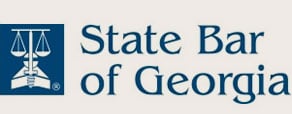When creditors aren't repaid money that you owe, they can seek to collect money directly from your paycheck in the form of wage garnishments. There are two types of bankruptcy you can consider to stop wage garnishment.
If you're facing significant debt, creditors can be ruthless. Collections tactics may begin with harassing phone calls and threatening letters where bill collectors suggest you're lazy, irresponsible, or careless with your finances. These cruel responses only add anxiety to an already stressful situation. Here at Woodall & Woodall in Valdosta, Georgia, our attorneys understand that it only takes one emergency or difficult situation to lead to crushing debt. The moment you get behind in your finances, there seems to be no way to get back on level ground.
Unfortunately, if you don't have the funds to repay those tenacious creditors or collection agencies, they have the means to take the money you earn before you even get paid. When creditors aren't repaid money that you owe, they can seek to collect money directly from your paycheck in the form of wage garnishments.

What is Wage Garnishment?
Wage garnishment is the legal right for a creditor—those to whom you owe money—to deduct a percentage of your regular earnings from your employer before your paycheck is received. If your creditors seek to garnish your wages, a court order will be provided to your employer who will notify you about the changes that will take place. Certain debts like child support, back taxes, and student loans are automatically eligible for wage garnishment. Other creditors must get a court order to garnish your wages.
[Make sure you understand every option available.Here's how bankruptcy protects you and stops creditor harassment.]
How much can they take?
A creditor who has obtained a court order can take up to 25% of your paycheck after regular deductions. If you owe money to agencies that can take your money without a court order, it only gets worse. If you owe child support or alimony and aren't supporting a spouse or child, up to 60% of your income can be garnished. If you owe back taxes, the IRS can take a big percentage of your income as well. The exact amount is determined by a formula that includes the number of dependents you have and your standard deduction amount. If you owe money for student loans, only 15% of your wages can be garnished. However, a court order isn't needed to obtain this garnishment.
Will I Be Notified?
How you are notified about wage garnishment can vary. In the event a creditor seeks a court judgment, you will likely be notified by your employer. Child support cases are settled through the court and the payment will be automatically be withheld from your earnings. The IRS and agencies seeking payment for student loans will notify you by mail before wage garnishment begins.
Automatic Stay
Wage garnishment helps only one person: the collector that gets paid. It's no secret that this type of collection tactic can serve to sink you deeper in debt as you try to survive on what's left of your paycheck. Luckily, there are laws to protect hardworking consumers from being thrown into an endless cycle of deeper debt due to wage garnishment.
[Filing for bankruptcy is never an easy decision. A lawyer can help assess your financial situation. Here's what to look for in a bankruptcy attorney.]
An automatic stay is a ruling from the court that stops debt collectors from garnishing your wages. In fact, an automatic stay immediately stops all legal actions regarding your finances. This powerful ruling can prevent you from disconnection of utilities, foreclosure, and eviction from your home. Even if you aren't facing those life-altering situations, an automatic stay can stop wage garnishments immediately after you file for bankruptcy.

How Bankruptcy Works to Stop Wage Garnishment
Because of the misconceptions surrounding bankruptcy, it is often considered a last resort. While we know that bankruptcy is a decision that shouldn't be taken lightly, it can sometimes be the best option to recover financial security. There are two types of bankruptcy you can consider to stop wage garnishment.
[Check out our Bankruptcy FAQ for answers to common questions about bankruptcy.]
How Chapter 7 Bankruptcy Can Help
Chapter 7 bankruptcy works to pay off your debt with the liquidation of your assets. A trustee gathers and sells your eligible assets, then uses the proceeds of the sale to pay your creditors. The remaining eligible debts in a Chapter 7 bankruptcy are discharged (removed). Since the debts are no longer owed, you won't be subject to wage garnishment. In most cases, you have enough exemptions to protect your assets from liquidation. If not, you file a Chapter 13 bankruptcy and pay back what is required over a period of time.
How Chapter 13 Bankruptcy Can Help
Chapter 13 bankruptcy is a plan that allows you to pay back a portion of your debt over the course of five years. Chapter 13 bankruptcy doesn't require you to sell your home or any other other assets. Instead, it is a plan to reorganize your debt into a payment plan that will allow you to pay off your debt sooner. Since you are making payments to a trustee, your wages will no longer be eligible for wage garnishment.
Non-Dischargeable Debt
Some types of debt are not eligible to be discharged in bankruptcy proceedings. This debt is referred to as non-dischargeable debt. The most common types of non-dischargeable debt are student loans, child support or alimony payments, and state and local taxes. Other non-dischargeable debt will be determined by the court, usually when a creditor can prove there was no intention for the debtor to repay the loan.
[Many Americans suffer from medical debt. Find out what happens to your medical debt in bankruptcy.]
Non-chargeable debt collection on student loans and past due child support and alimony are stayed while in a Chapter 13. In other words, they cannot collect them, but they are nonchargeable. When the bankruptcy is over, they will still be there.

Getting Back on Track
Facing bankruptcy can be an intimidating process. However, getting back on stable financial ground is immensely rewarding. When your case begins, you may feel like your situation will never get better. That's why it's important to remember that bankruptcy is not a form of punishment. It's a way out of debt. Learning about your future can help you focus on the positive aspects of your case.
If you were involved in a Chapter 7 bankruptcy filing, the court will close your case after you receive your discharge and any appeals are taken care of. A Chapter 13 bankruptcy plan requires you to complete your payment plan before the case is closed. In either case, you will need to rebuild your credit following a bankruptcy. The purchases you make and how you pay for them will help you take the first steps in life after bankruptcy.
[People often worry if their neighbors or friends are going to find out they filed for bankruptcy. There are very few ways someone could find out. Watch and learn to see why.]
Sometimes debt puts us in places we could never have imagined. No matter how hard you work or how successful you are, debt can affect anyone. Regardless of what you've faced in the past, you don't have to battle overwhelming debt alone. If you're living with harassing debt collection attempts, wage garnishment, or are sinking under an enormous pile of debt, we want to help.
The expert bankruptcy attorneys at Woodall & Woodall have more than 34 years experience and have helped over 22,000 individuals through bankruptcy. We understand your situation. We specialize in the laws surrounding debt and bankruptcy to help hardworking consumers who are struggling to meet the endless demands of crushing debt.
If you are facing significant debt, don't suffer alone. Fill out our simple online quiz to see if you qualify for bankruptcy. The answers to your financial problems could be closer than you think.






